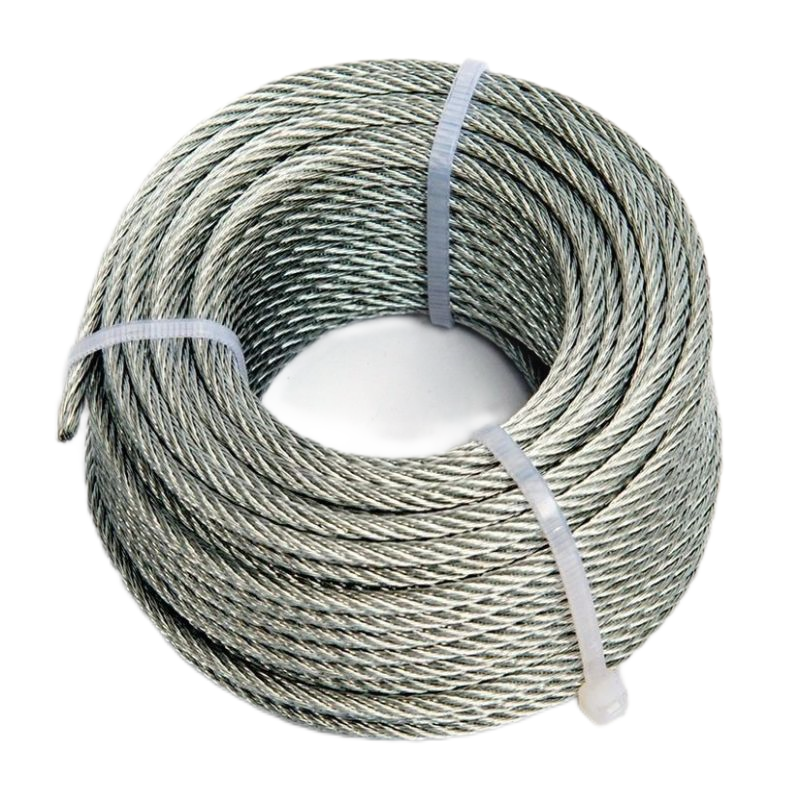
Stainless wire ropes are vital for their strength and corrosion resistance. Blogs offer insights for professionals and DIY enthusiasts on their uses and benefits. Here’s what you can typically expect to find in these blogs:
One of the most significant advantages of stainless steel electrical wire is its corrosion resistance. Stainless steel is an alloy that contains chromium, which forms a thin, passive layer on the surface of the material. This layer acts as a barrier against corrosive substances, such as water, acids, and salts, preventing them from reaching the underlying metal and causing damage. This corrosion resistance is particularly important in electrical applications, as it ensures that the wire remains functional and reliable, even in harsh environments.
Another key benefit of stainless steel electrical wire is its durability. Stainless steel is known for its strength and toughness, which allows it to withstand a wide range of temperatures and pressures. This makes it an ideal choice for applications where the wire may be exposed to extreme conditions, such as high-temperature environments or high-pressure situations. Additionally, stainless steel is resistant to wear and tear, which means that it can maintain its performance over an extended period of time, even in demanding environments.
Another key benefit of stainless steel electrical wire is its durability. Stainless steel is known for its strength and toughness, which allows it to withstand a wide range of temperatures and pressures. This makes it an ideal choice for applications where the wire may be exposed to extreme conditions, such as high-temperature environments or high-pressure situations. Additionally, stainless steel is resistant to wear and tear, which means that it can maintain its performance over an extended period of time, even in demanding environments.
In addition to these benefits, stainless steel electrical wire also offers several other advantages, such as its resistance to heat and its non-magnetic properties. Stainless steel has a high melting point, which means that it can withstand high temperatures without losing its strength or functionality. This makes it an ideal choice for applications where the wire may be exposed to heat, such as in industrial settings or in automotive applications. Additionally, stainless steel is non-magnetic, which can be beneficial in applications where magnetic interference may be a concern, such as in electronic devices or in medical equipment.
Composition: High chromium (16-26%) and nickel (8-14%) with low carbon.
Properties: Non-magnetic, excellent corrosion resistance, good formability and weldability.
Applications: Food processing equipment, chemical tanks, kitchen utensils, medical devices.
Composition: High chromium (10.5-27%) with little or no nickel.
Properties: Magnetic, good corrosion resistance, lower ductility compared to austenitic steels.
Applications: Automotive trim, industrial equipment, kitchenware.
Composition: Moderate to high chromium (12-18%) with higher carbon content.
Properties: Magnetic, high strength and hardness, moderate corrosion resistance.
Applications: Cutlery, surgical instruments, turbine blades.
Composition: Balanced austenitic and ferritic structure, with 22-25% chromium, 4-7% nickel, and 2-3% molybdenum.
Properties: Higher strength and better stress corrosion resistance than austenitic steels, improved toughness compared to ferritic steels.
Applications: Oil and gas industry, chemical processing, marine environments.
Composition: Contains chromium, nickel, and copper.
Properties: High strength and hardness through heat treatment, good corrosion resistance.
Applications: Aerospace components, high-strength fittings, nuclear waste casks.
Copper (Cu): Sometimes added to improve corrosion resistance and workability.
Titanium (Ti) and Niobium (Nb): Added to stabilize carbon and prevent carbide precipitation during welding.
Stainless steel electrical wire offers a range of benefits that make it an ideal choice for various applications. Its corrosion resistance, durability, and flexibility make it a reliable and versatile material that can be used in a wide range of settings, from residential to industrial. By understanding these advantages, you can make an informed decision about whether stainless steel electrical wire is the right choice for your specific needs.
Stainless wire ropes are vital for their strength and corrosion resistance. Blogs offer insights for professionals and DIY enthusiasts on their uses and benefits. Here’s what you can typically expect to find in these blogs: